Risotto with Artichoke Stems, a seasonal first course, easy and tasty, perfect for utilizing the still good part of the artichoke stems that are usually discarded.
How many times have we thrown away the stems and leaves of artichokes thinking they were useless? So many times. In reality, it’s really a shame to waste them. Artichoke stems and leaves can be recycled in many ways. Don’t throw them in the trash, but use, for example, the stems to make this delicious risotto that my mom taught me how to make.
And with the leaves? I make a liver-cleansing herbal tea just by putting them in boiling water (recipe coming soon).
Artichokes, besides being very healthy (they are purifying, diuretic, and digestive, they reduce bad cholesterol, improve liver function, and counteract various pathologies), are very versatile and lend themselves to many recipes in the kitchen. They are excellent both cooked and raw. Even the artichoke stem has properties that are very useful for our liver’s well-being: it contains many vitamins (A1, B1, and C) and minerals. They certainly don’t appeal to everyone due to their slightly bitter taste, but we love them.
But now, let’s see together how to prepare the Risotto with Artichoke Stems. Get the ingredients ready because we’re starting.
Seasonal first course, easy and economical.
And if you try it, don’t forget to let me know in the comments on my Facebook page HERE. I’m waiting for you.
Gabriella
More delicious recipes to try:
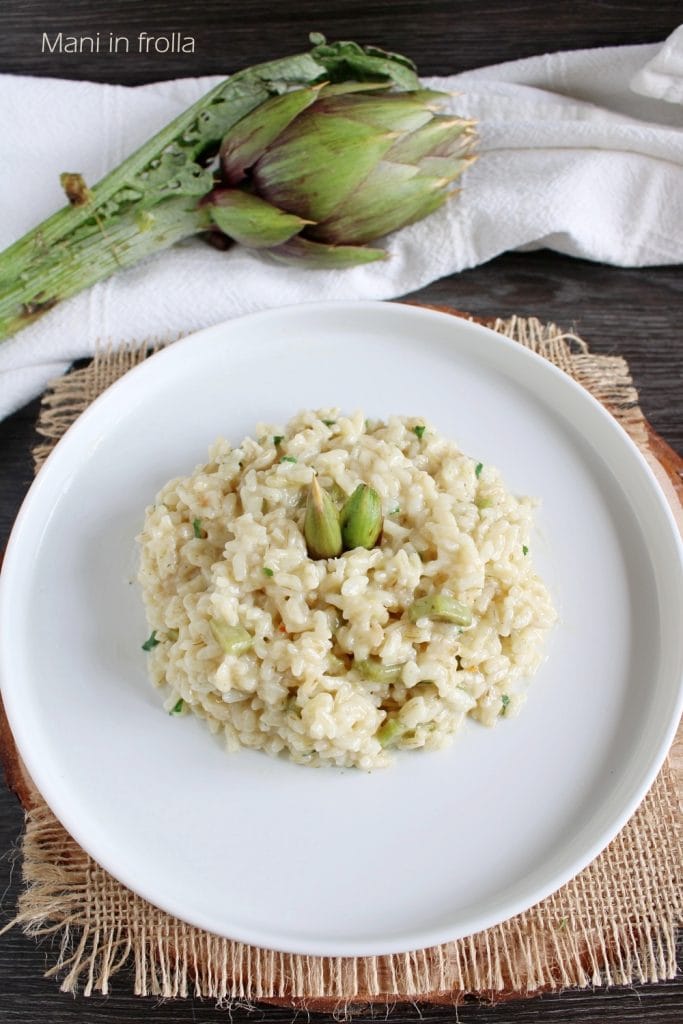
- Difficulty: Very Easy
- Cost: Economical
- Preparation time: 10 Minutes
- Portions: 3
- Cooking methods: Stove
- Cuisine: Italian
- Seasonality: Winter, Spring
Ingredients
- 1 cup Carnaroli rice (I use semi-whole grain)
- as needed artichokes (the stems of 3 artichokes)
- 3 tbsp extra virgin olive oil
- 1/2 onion
- as needed vegetable broth
- 1 knob butter
- as needed grated Parmesan (or Grana Padano)
- as needed parsley (chopped)
Tools
- 1 Cutting board
- 1 Peeler
- 1 Pan
- 1 Chopper
Steps to make the Risotto with Artichoke Stems
First, clean the artichokes: cut the stems of the artichokes and discard only the terminal, tougher part, then, using a peeler, remove the outer layer and cut them first into four parts lengthwise, then into chunks.
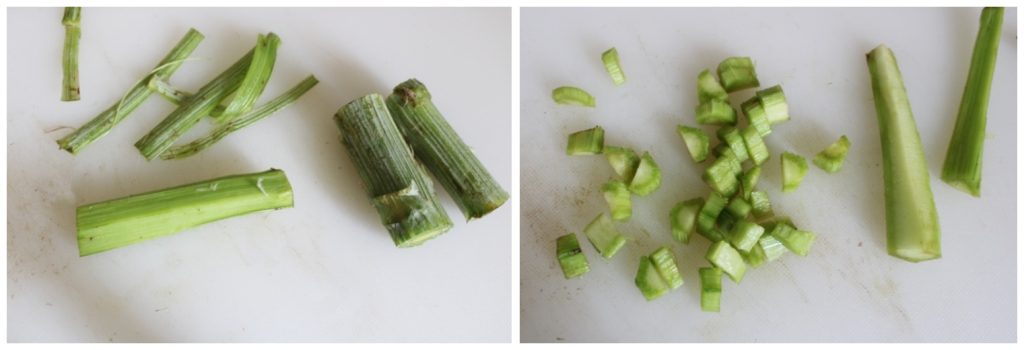
Now, heat 3 tbsp of extra virgin olive oil and half a chopped onion in a pan, add the artichoke stems chunks, let them brown slightly, then add the rice, let it toast for a few minutes (if you like, deglaze with 1/2 glass of white wine).
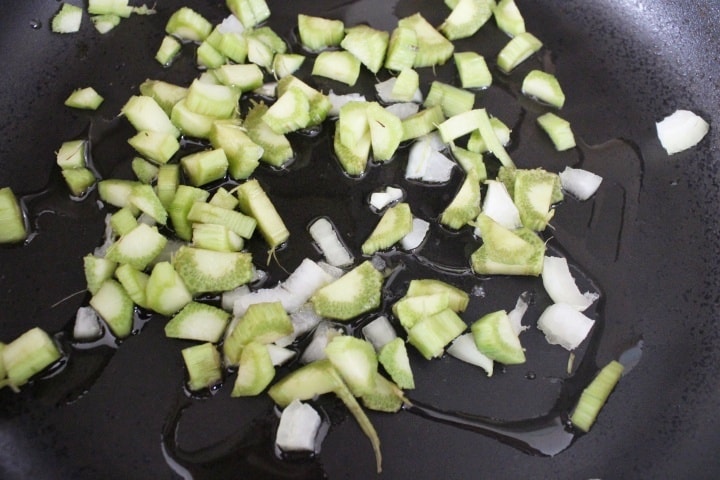
Continue cooking by adding broth little by little and stirring occasionally to prevent sticking. Add the broth only when the previous one has been absorbed.
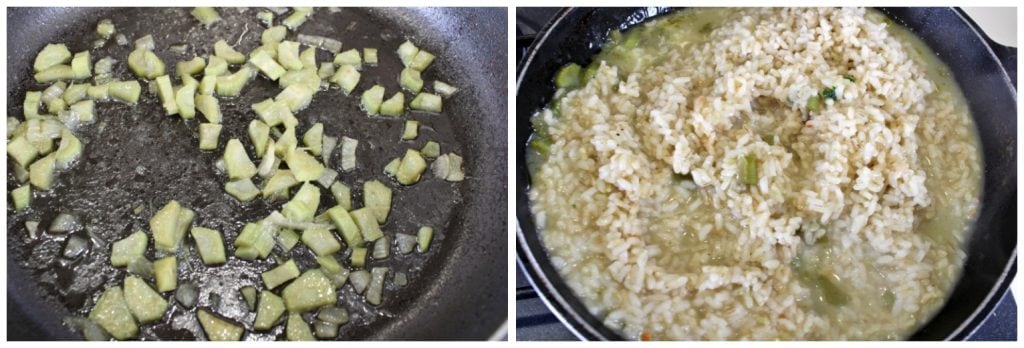
Finish cooking: it will take about 20 minutes in total. Once the risotto is ready, add a knob of butter, the chopped parsley, and a generous handful of grated Parmesan (or Grana), stir well and serve hot.

Here is the Risotto with Artichoke Stems ready. Enjoy your meal!
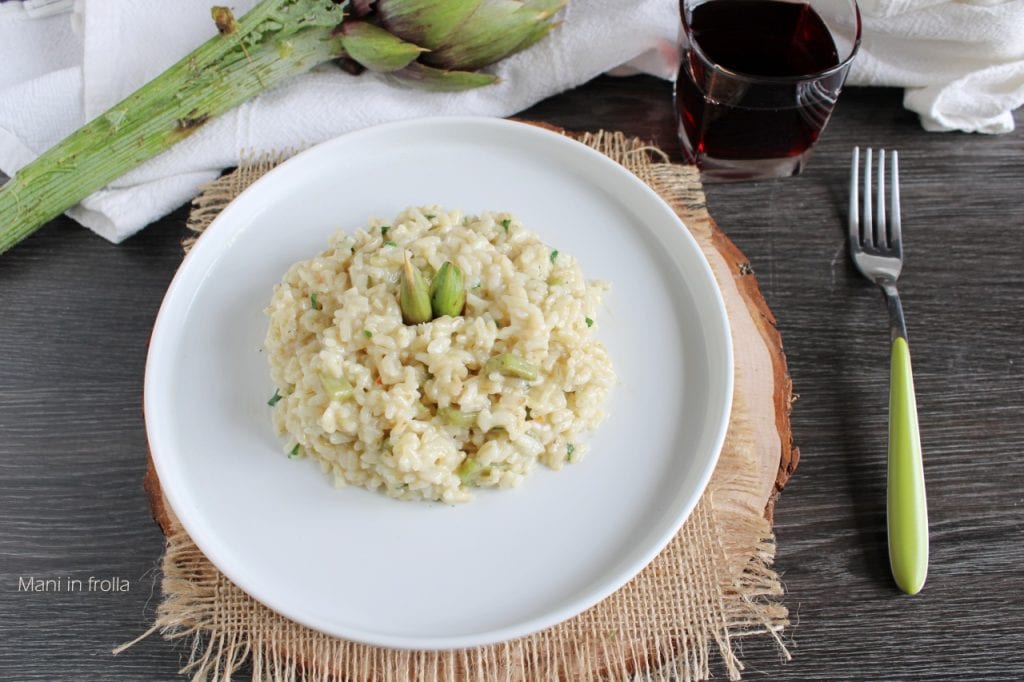
See you in the next recipe.
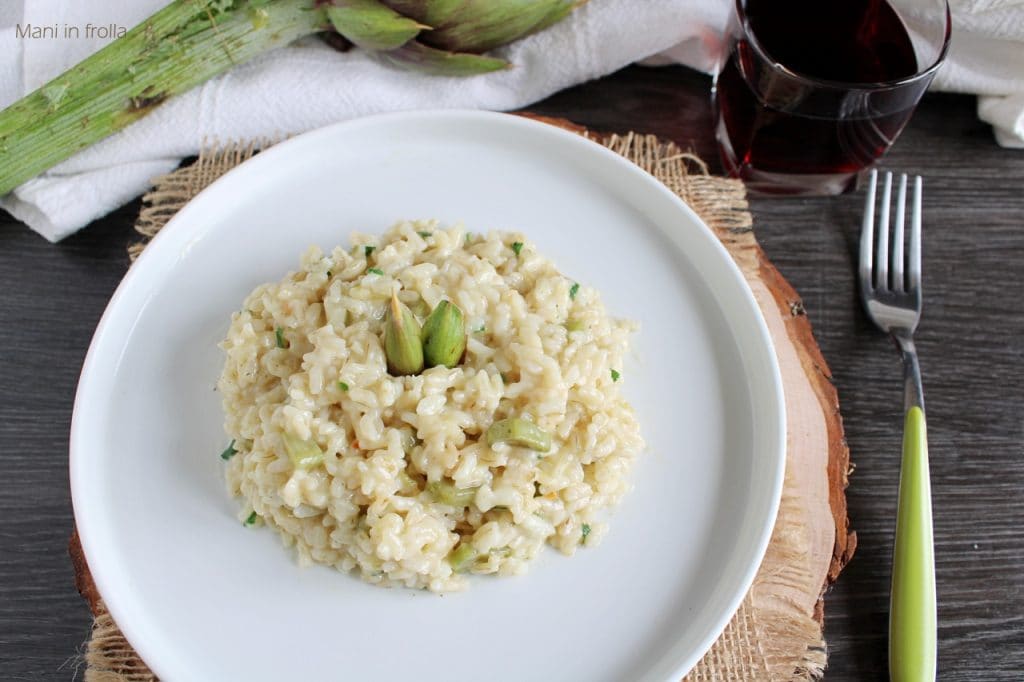
Storage
I recommend consuming the Risotto with Artichoke Stems immediately. If there are leftovers, store them in the fridge and the next day reheat them in a pan or take the opportunity to make tasty rice patties.
I recommend consuming the Risotto with Artichoke Stems immediately. If there are leftovers, store them in the fridge and the next day reheat them in a pan or take the opportunity to make tasty rice patties.
During cooking, add a ladle of boiling broth at a time and not all together. This procedure ensures the rice does not overcook, making it almost mushy.
How to store freshly purchased artichokes
Like all fresh products, artichokes should be consumed as soon as possible. However, if you can’t prepare them immediately, it’s best to store them in the refrigerator (or in a cool environment) with their stems immersed in a water-filled container. If the stems have already been cut, you can instead wrap them in moist kitchen paper and store them in the refrigerator.
Like all fresh products, artichokes should be consumed as soon as possible. However, if you can’t prepare them immediately, it’s best to store them in the refrigerator (or in a cool environment) with their stems immersed in a water-filled container. If the stems have already been cut, you can instead wrap them in moist kitchen paper and store them in the refrigerator.
IF YOU LIKE MY RECIPES, YOU CAN ALSO FOLLOW ME ON MY FACEBOOK PAGE HERE OR ON PINTEREST HERE OR ON INSTAGRAM HERE
Return to the Home Page

